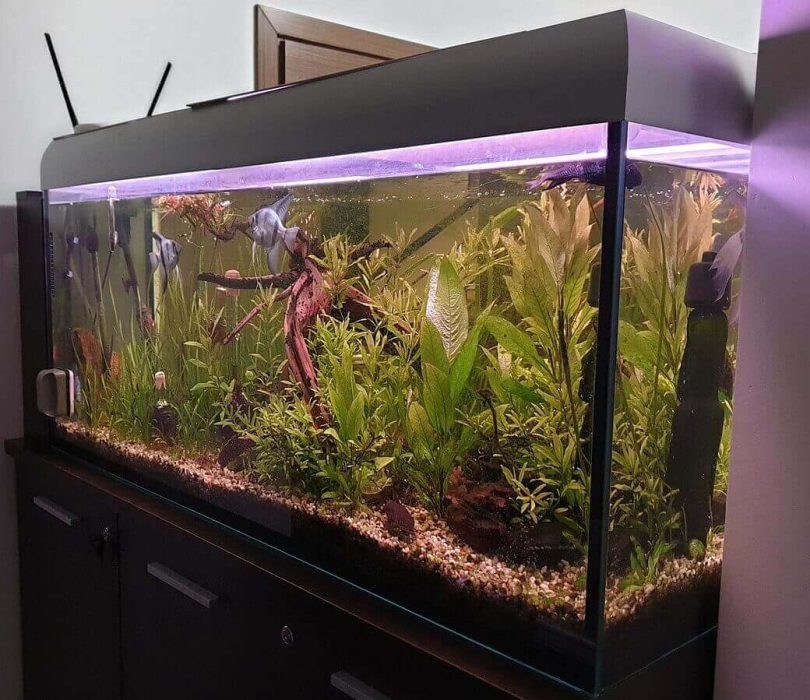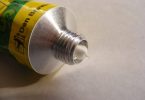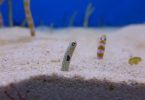Table of Contents
Hey there, aquarium enthusiasts! Have you ever wondered what would happen if you decided to use unfiltered sea water in your saltwater aquarium? While it might sound like an exciting experiment, it’s essential to understand the potential effects it could have on your aquatic ecosystem.
In this blog post, we’ll dive into the various aspects of using unfiltered sea water in a saltwater aquarium, exploring its impact on fish health, coral reefs, invertebrates, and the overall chemical composition of the water. Let’s get started!
Effects of Unfiltered Sea Water on Aquarium Life
Impact on Fish Health
When it comes to your finned friends, their well-being is always a top priority. Using unfiltered sea water in your saltwater aquarium can have both positive and negative effects on fish health.
On the bright side, unfiltered sea water contains a wide range of natural microorganisms that can contribute to a more robust and diverse microbial community in the aquarium.
This can help create a healthier environment for the fish, as these microorganisms play essential roles in nutrient recycling and waste decomposition.
However, unfiltered sea water can also introduce potential risks. For instance, it might carry harmful substances, such as pollutants or excessive nutrients, which could be detrimental to the fish.
Additionally, abrupt changes in salinity levels and temperature between the ocean and the aquarium can cause stress to the fish and weaken their immune systems, making them more susceptible to diseases.
Therefore, it’s crucial to carefully assess the quality of the unfiltered sea water and acclimate the fish slowly to minimize stress during the transition.
Influence on Coral Reefs
For those aquarium enthusiasts who love the mesmerizing beauty of coral reefs, using unfiltered sea water can be a double-edged sword. Coral reefs are delicate ecosystems that rely on precise environmental conditions to thrive.
While unfiltered sea water can provide natural and beneficial microorganisms, it may also introduce harmful substances or pathogens that can wreak havoc on the coral’s health.
The potential impact on coral reefs extends beyond their survival. The introduction of foreign species or invasive microorganisms through unfiltered sea water can disrupt the delicate balance of the reef’s biodiversity.
In the worst-case scenario, this could lead to the spread of diseases or even coral bleaching, which poses a significant threat to these unique and essential marine habitats.
If you decide to use unfiltered sea water in your reef aquarium, consider closely monitoring water parameters and seeking professional advice to ensure the well-being of your coral colonies.
Effect on Invertebrates
Invertebrates, such as shrimps, crabs, and snails, play a crucial role in maintaining a healthy saltwater aquarium. They are often excellent cleaners, helping to control algae growth and consuming leftover food.
However, the introduction of unfiltered sea water can significantly impact these invertebrates, both positively and negatively.
On the positive side, unfiltered sea water can bring in a rich source of essential minerals that support the growth and development of invertebrates.
The diverse array of microorganisms in the unfiltered water may also provide a more varied diet for certain species, enhancing their overall health.
On the flip side, unfiltered sea water might expose invertebrates to harmful substances, leading to stress or even mortality.
Additionally, the sudden changes in water chemistry can be challenging for these sensitive creatures to adapt to, potentially leading to adverse effects on their behavior and reproductive capabilities.
If you plan to incorporate unfiltered sea water into your aquarium, be sure to carefully observe the well-being of your invertebrates and be prepared to take prompt action if any issues arise.
Chemical Composition of Unfiltered Sea Water
Presence of Harmful Substances
Unfiltered sea water, as the name suggests, is water collected directly from the ocean without any treatment or filtration. While the ocean is a vast and dynamic ecosystem, it’s not without its share of pollutants and harmful substances.
These can include industrial runoff, agricultural residues, plastic waste, and even natural toxins produced by certain organisms.
When using unfiltered sea water in a saltwater aquarium, you run the risk of introducing these harmful substances into your closed aquatic environment.
Such pollutants can have detrimental effects on the health of your fish, coral, and invertebrates, as well as disrupt the overall ecological balance within the aquarium.
It’s essential to be cautious and evaluate the water quality of the sea water you intend to use, especially if it’s collected from areas close to human activities or pollution sources.
Variation in Salinity Levels
Another factor to consider when using unfiltered sea water is the variation in salinity levels. The salinity of ocean water can differ significantly from one location to another, depending on factors such as proximity to river estuaries, evaporation rates, and ocean currents.
When adding unfiltered sea water to your aquarium, you might be introducing fluctuations in salinity that can stress your marine inhabitants.
Maintaining stable salinity levels is crucial for the well-being of fish and other marine organisms. Sudden changes in salinity can lead to osmotic stress, where water enters or leaves the cells of aquatic organisms, disrupting their internal balance.
To mitigate this risk, consider gradually mixing the unfiltered sea water with your aquarium’s existing water while monitoring salinity levels closely.
Regular water testing will help you ensure that the salinity remains within the optimal range for your aquarium inhabitants.
Potential Benefits of Unfiltered Sea Water
Natural Microorganisms
One of the significant benefits of using unfiltered sea water is the presence of a diverse range of natural microorganisms. These microorganisms can contribute to a more balanced and resilient ecosystem within your saltwater aquarium.
Beneficial bacteria play a crucial role in breaking down organic waste, converting ammonia to less harmful substances like nitrate through the nitrogen cycle.
By introducing natural microorganisms from the ocean, you can enhance the biological filtration in your aquarium, leading to a healthier environment for your fish and other marine life.
The robust microbial community can also help control algae growth and improve water quality, ultimately reducing the need for artificial filtration methods.
Presence of Essential Minerals
Unfiltered sea water is naturally rich in essential minerals and trace elements that are vital for the well-being of marine organisms.
These minerals play essential roles in various physiological processes, including shell and exoskeleton formation, osmoregulation, and enzymatic activities.
In a closed aquarium system, mineral depletion can occur over time due to water evaporation and the uptake of minerals by living organisms.
By incorporating unfiltered sea water, you can replenish these essential minerals and maintain a more stable and balanced environment for your marine inhabitants.
However, it’s essential to ensure that the unfiltered sea water is free from harmful substances or pollutants that could negate the benefits of the essential minerals.
Risks and Challenges of Using Unfiltered Sea Water
Risk of Disease Transmission
Introducing unfiltered sea water to your aquarium comes with the potential risk of disease transmission. The ocean is a vast and complex ecosystem with countless organisms, some of which may carry diseases that can be harmful to your aquarium inhabitants.
These pathogens could be introduced to your closed aquarium environment through unfiltered sea water, leading to health issues and potential outbreaks.
To mitigate the risk of disease transmission, it’s crucial to quarantine any new marine life or live rocks collected from the ocean before introducing them to your aquarium.
Additionally, consider using appropriate water treatment and disinfection methods to minimize the likelihood of introducing harmful pathogens into your aquatic ecosystem.
Challenge of Maintaining Stable Conditions
Maintaining stable water conditions is vital for the well-being of your saltwater aquarium’s inhabitants. Unfiltered sea water can be highly variable in its chemical composition, including temperature, pH, and salinity.
The challenge lies in adapting this dynamic water to the more controlled and stable environment of your aquarium.
To address this challenge, gradual acclimatization is essential. Slowly introduce unfiltered sea water into your aquarium while closely monitoring water parameters to ensure a smooth transition.
Regular water testing and adjustments will be necessary to maintain stable conditions and prevent stress on your marine life.
Conclusion
In conclusion, using unfiltered sea water in a saltwater aquarium can offer both benefits and risks. While it can bring in natural microorganisms and essential minerals, it may also introduce harmful substances and pathogens.
Careful consideration and preparation are vital when incorporating unfiltered sea water to ensure the well-being of your fish, coral, and invertebrates.
Remember, a thriving saltwater aquarium requires a delicate balance, and by being mindful of the potential effects, you can create a beautiful and healthy marine environment for your aquatic companions. Happy aquarium keeping!







